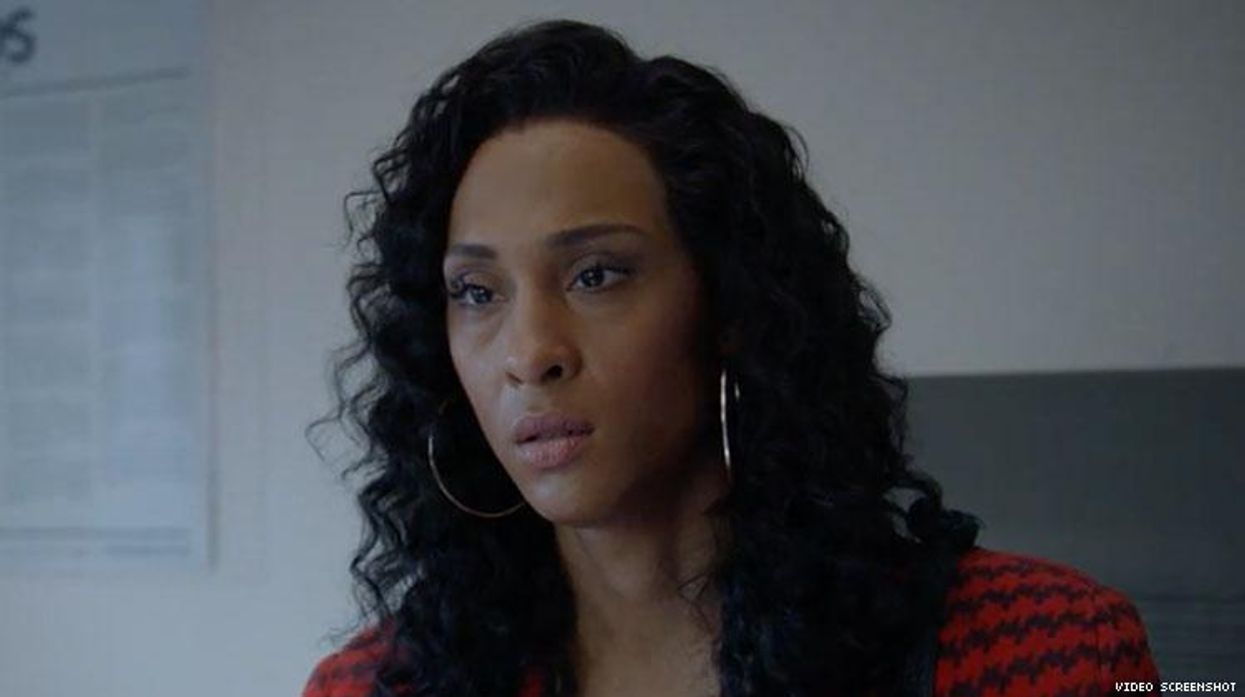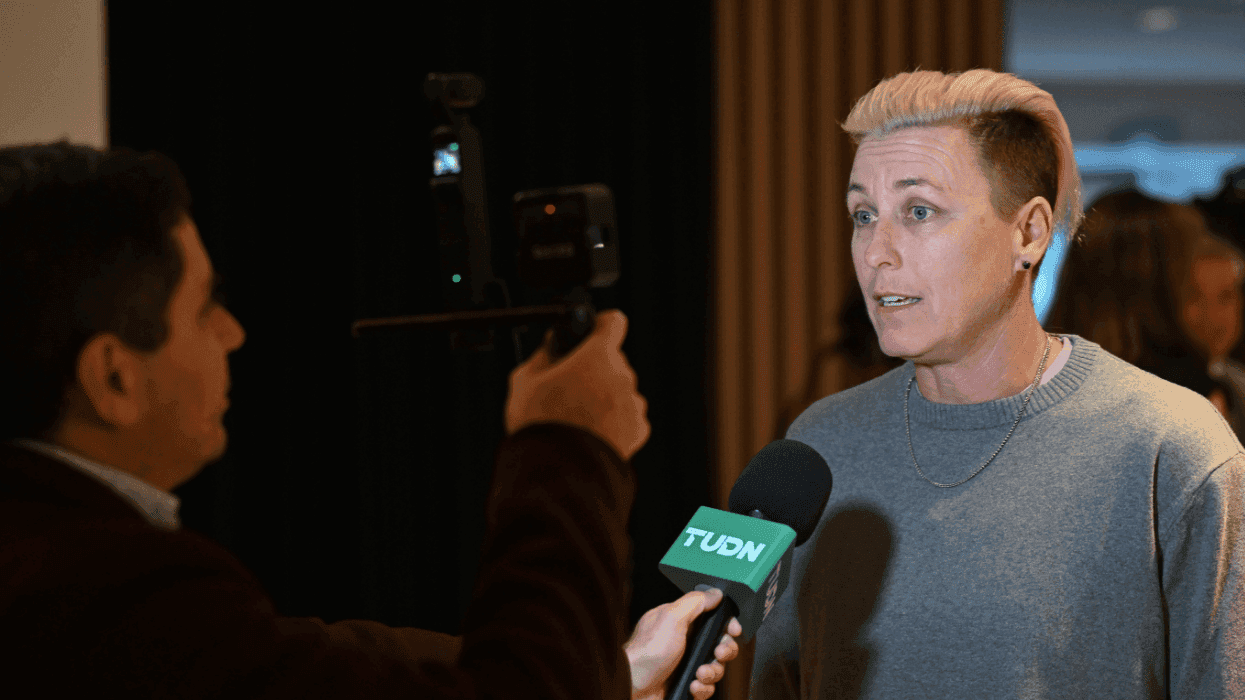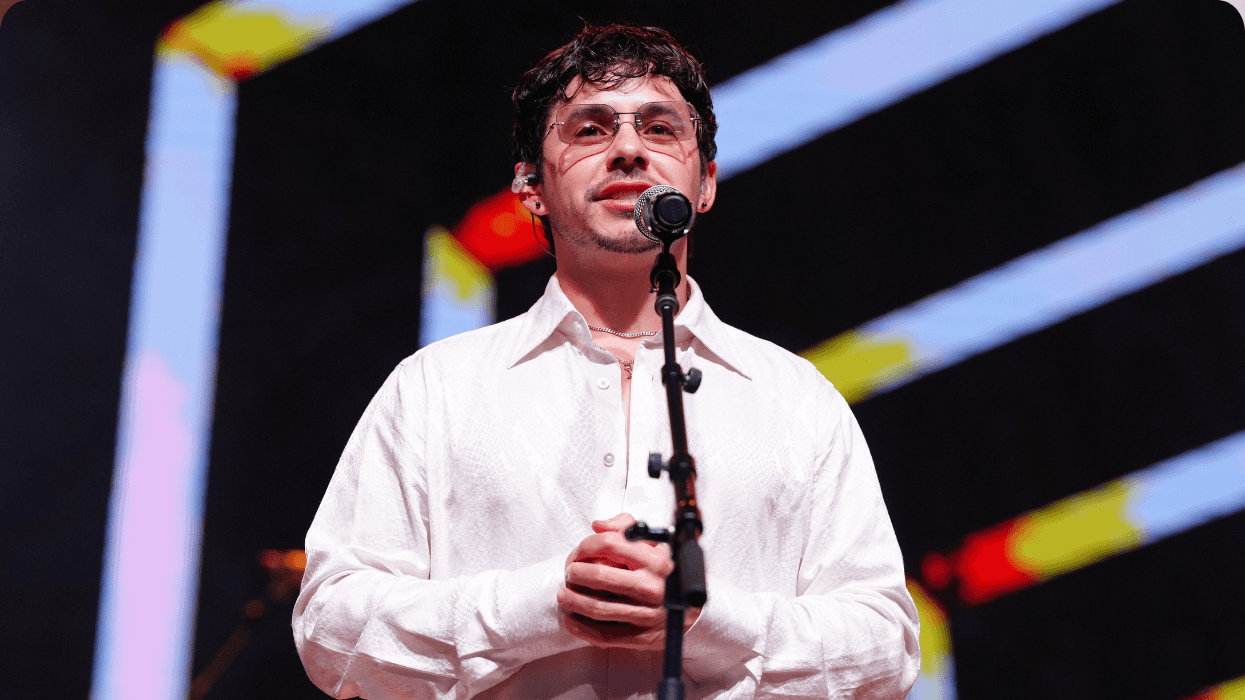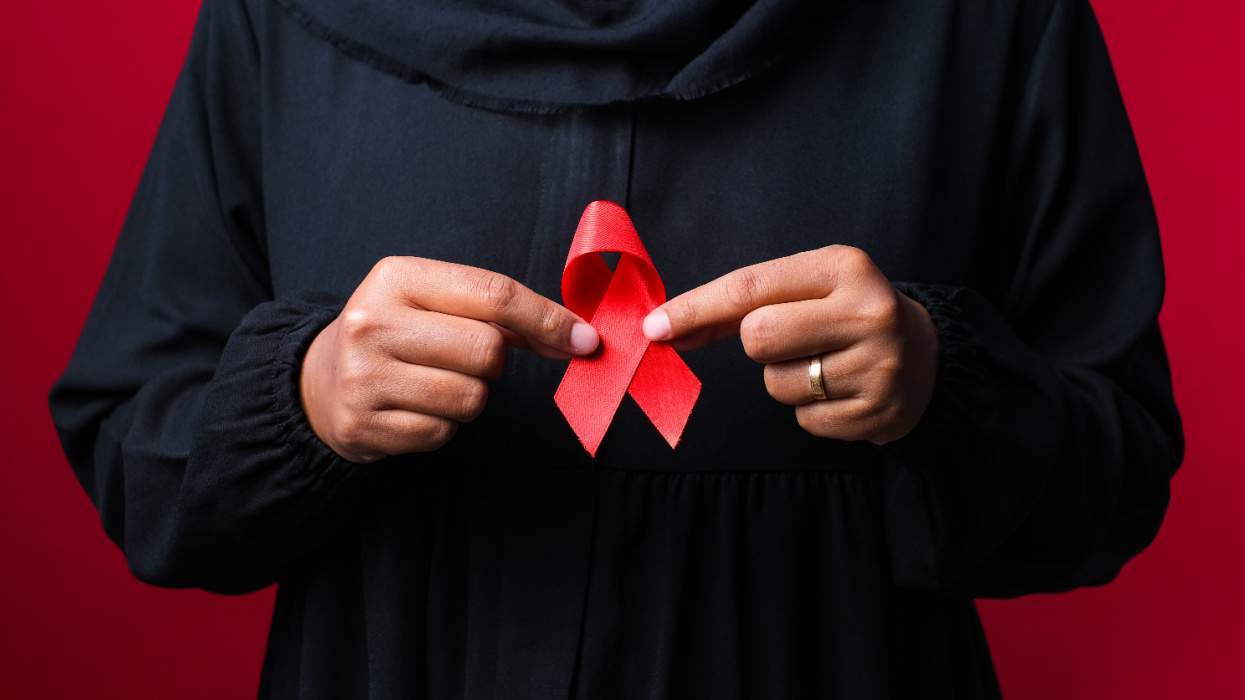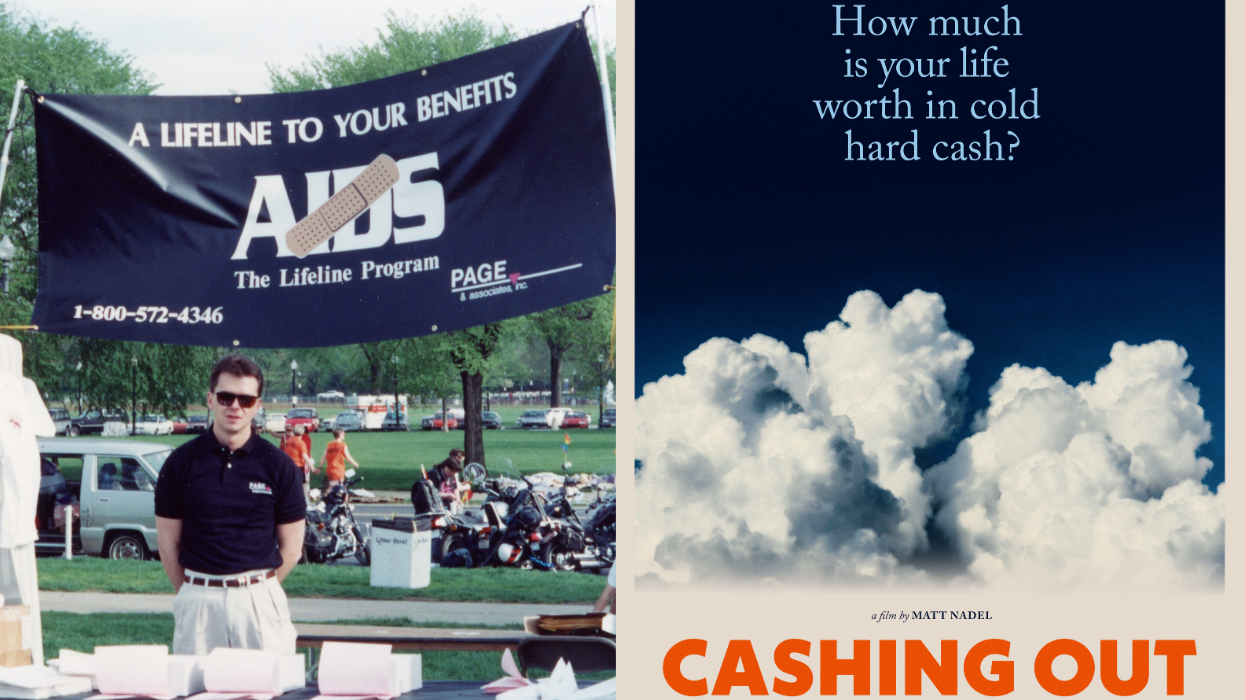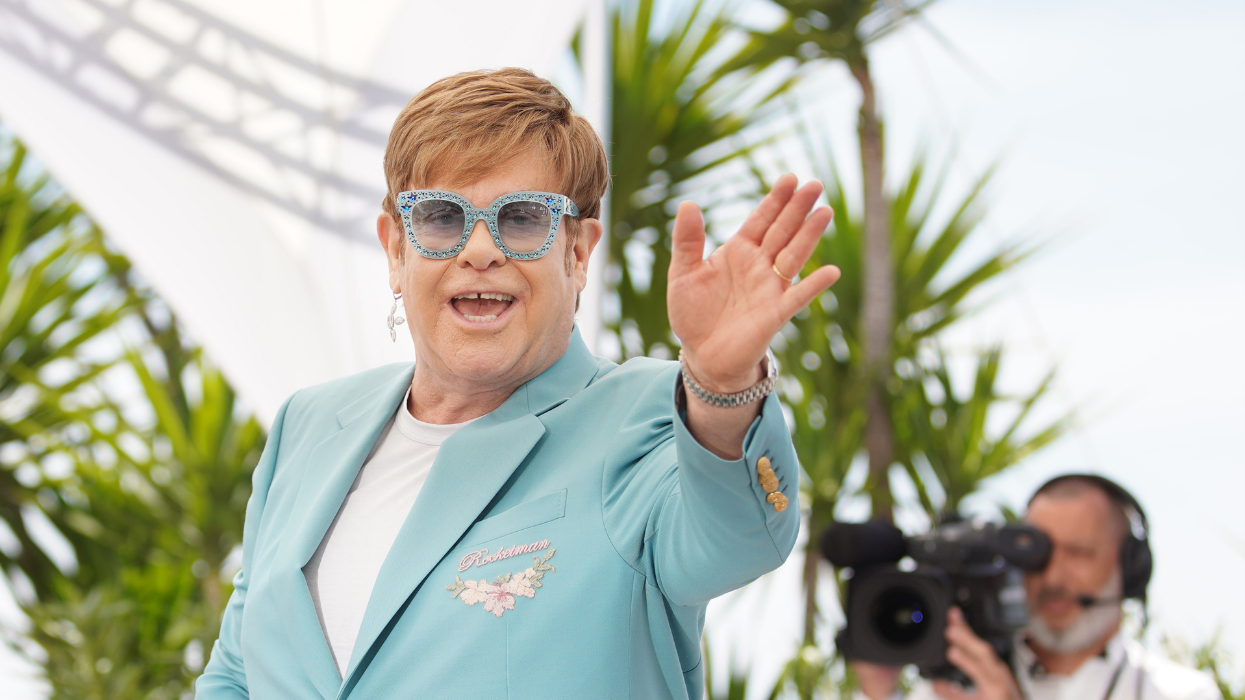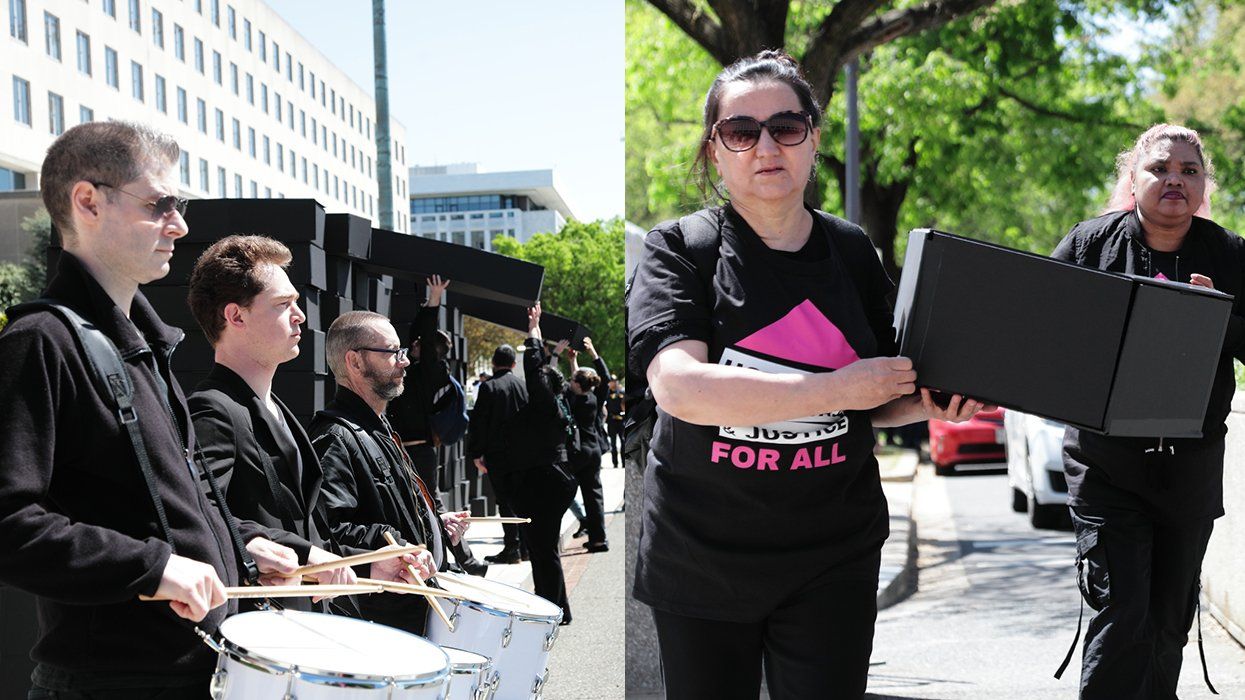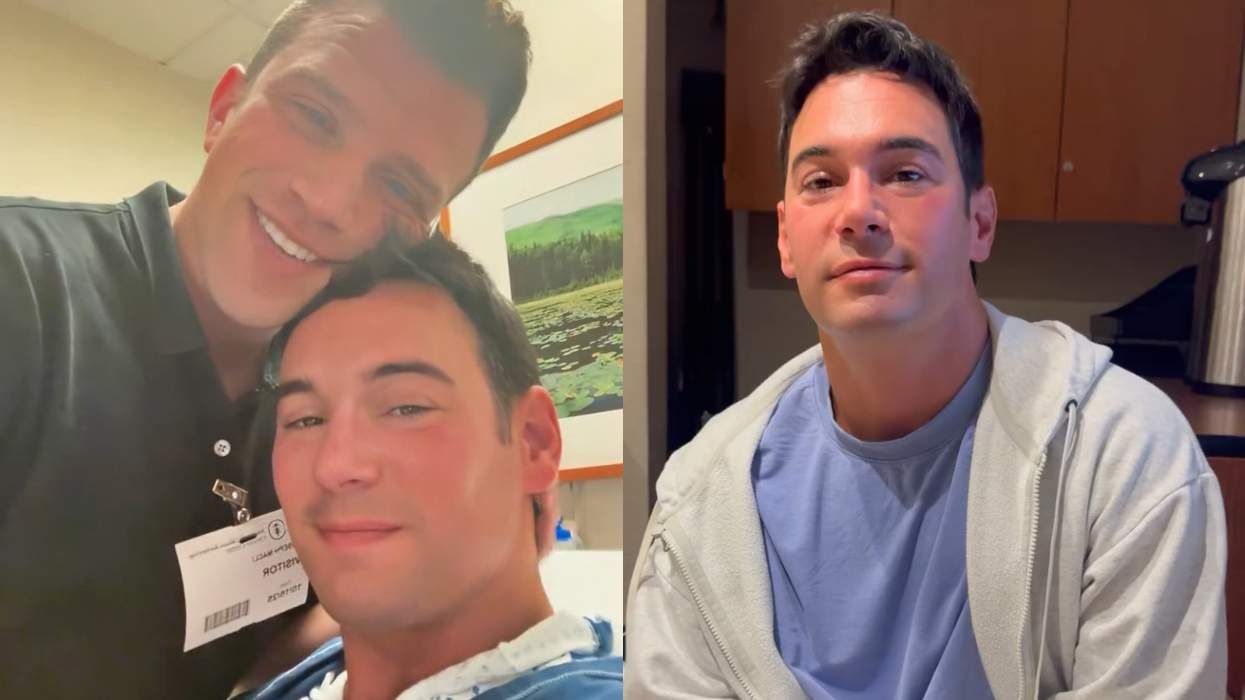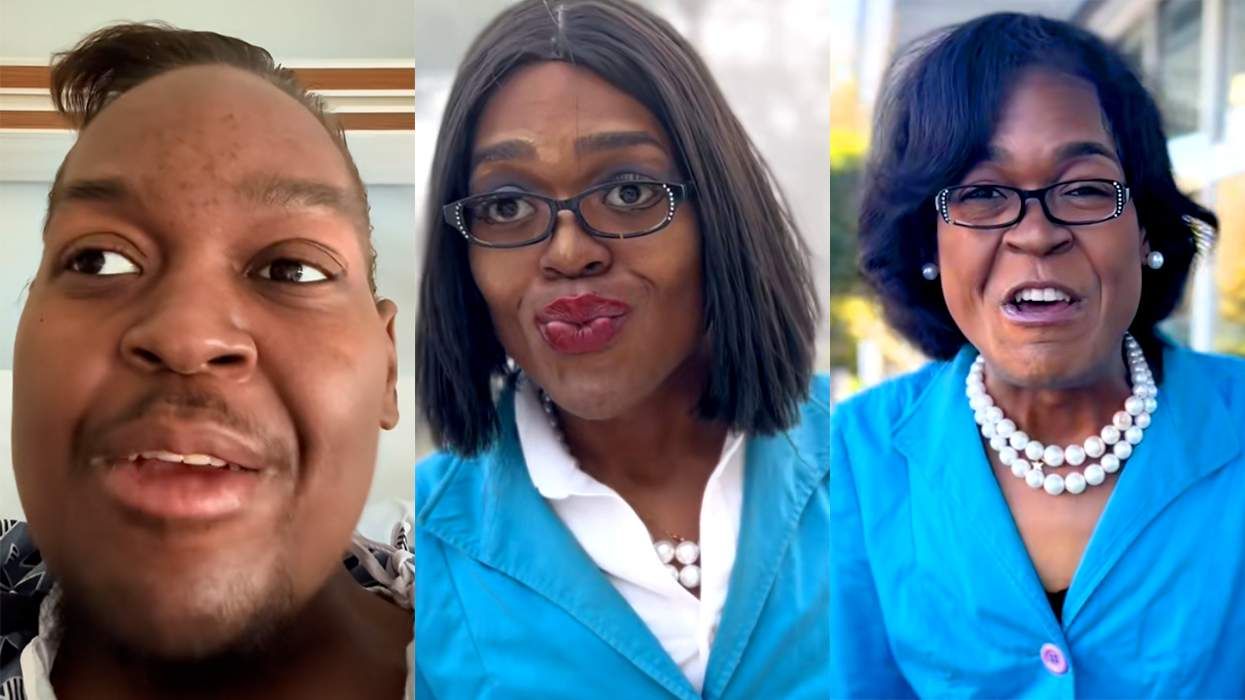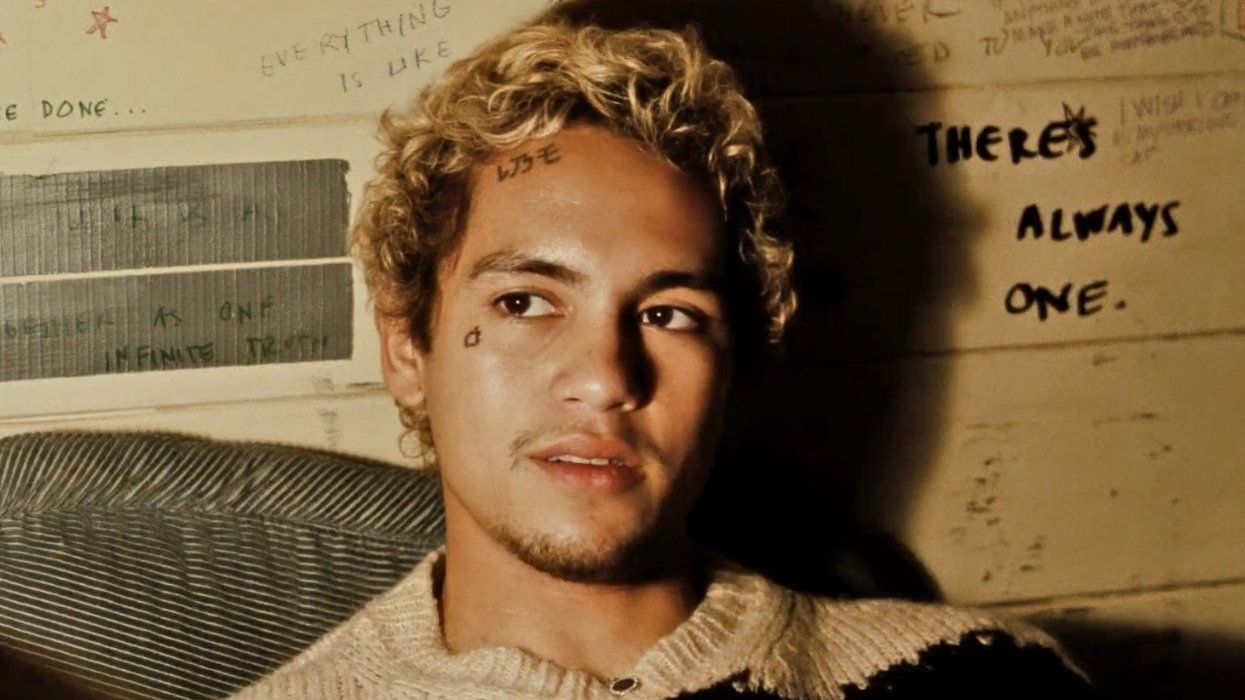Season 2 premiere of Pose jam-packed a ton into its first episode. While it notably skips ahead in time, leaving the 1980s and landing square in 1990 after the debut of Madonna's hit "Vogue," the episode also begins to dig into the realities of the AIDS epidemic, and the activism it spurred. Pray Tell (Billy Porter) and Blanca Evangelista (Mj Rodriguez) kick the episode off with a moving scene, visiting Hart Island, a site that served as a burial ground for those without families to bury them in New York City. There, many people who died of AIDS, were buried. But in the next scene, the show goes on to delve into the realities of living with the disease, as Blanca goes in to the clinic for a routine check-up.
"Your T-cells have fallen below 200," Nurse Judy played by Sandra Bernhard informs Blanca in the scene.
Blanca, who walked into the visit feeling healthier and optimistic, asks, "So what's that mean?"
"It means we have to start monitoring once a month instead of every three months," Bernhard deadpans. "And we have to move your diagnosis from being HIV positive to having AIDS." For the second scene of the season, it's a heavy and pivotal one with Bernhard urging Blanca to begin zivodine (AZT) medication, a retrovirol used for HIV/AIDS that came on the market in 1987 that helped to slow the progression of the virus.
"Ain't that stuff for rich folks?" Blanca asks. Judy responds that while the medication is certainly expensive, due to wealthier, mostly white, gay men's donations there is the ability to redistribute the unused medication -- in this case, from those that died -- to those who can't afford it. And while redistribution of HIV medication has continued to this day, according to activists, it's unlikely that Blanca's exact story line would have played out in this way.
"It's very unlikely that this would have happened in New York," Jesus Aguais, the founder of AID for AIDS, the largest and longest running HIV/AIDS medicine redistribution organization in the US, told Out Tuesday night. Aguais points to laws that would have made it illegal for medical providers, at the time, to redistribute prescription medication. "What would have more likely happened in New York is that she went to the doctor and she realized that it would either take too long to get the medicine, or as a transgender woman," if she were homeless she might find the process too complicated and might have gone to a friend "who had switched their regimen [and had leftover AZT] or heard of a friend who died [but had leftover] and started using theirs."
In the first few years of AZT usage, as evidenced on Pose, there was widespread skepticism about the side effects the drug could have on those who took it. This skepticism gave birth to "buyers clubs" where groups would pool their money to buy alternative treatments, many times not yet approved for usage. But in 1992 and 1993 other drugs like didanosine (DDI) and zalcitabine (DDC) entered the market. These, according to Aguais began to provide options for those living with the disease and as people switched medicines, activists redistributed them to others.
Aguais moved to New York in 1989 from Venezuela and attended his first ACT UP meeting in 1990. "I didn't speak any English but it was the most amazing energy I ever saw," he says. "It was people from all walks of life, together, fighting for something." The sight spurred him to get involved, becoming an active member in the Latino caucus as a community organizer working with immigrant communities in New York. That work expanded, with Aguais devoting his professional life to the cause. In 1993, he took a job at St. Vincent Hospital in the HIV clinic as a counselor. So when the new medicines began to be introduced to the market, Aguais began collecting what was being thrown out.
"We have supported almost 21,000 people in 59 countries, getting them on treatment," he explained. His operating model has been different from others: once he begins to provide treatment to someone, his organization will continue to do so until the patient can obtain treatment elsewhere. "We become their ongoing pharmacy: this is not a headache, this is not where you can just go and get a flu shot." In pursuit of that effort, Aguais says he has saved almost $150 million in HIV medication, essentially from the garbage, in an effort that has become his life mission. But the work is not over.
As time has passed, Aguais says some have lost their sense of urgency as thoughts around the disease have changed from being a death sentence to a chronic condition, treatable with daily pills. And while that may be a reality for many, particularly in America and Europe, Aguais says people in places like his native country Venezuela are seeing its people ravaged by an epidemic almost identical to America's in the early 90s -- in Venezuela, instead of redistributing unused medication, he has gotten pharmaceutical companies to donate. But redistribution is still very much needed.
"Forty-eight percent of people with HIV around the world have no access to treatment," Aguais says. "We have a refugee camp of Burundian people in Rwanda who have HIV and are waiting for our medicine. We get calls from Romani, Egypt and Pakistan. Right now we need more distribution, everyone should know not to throw anything away because we really need everything there is."
RELATED | Early AIDS Activism Was So Much More Diverse Than Media Depicts


